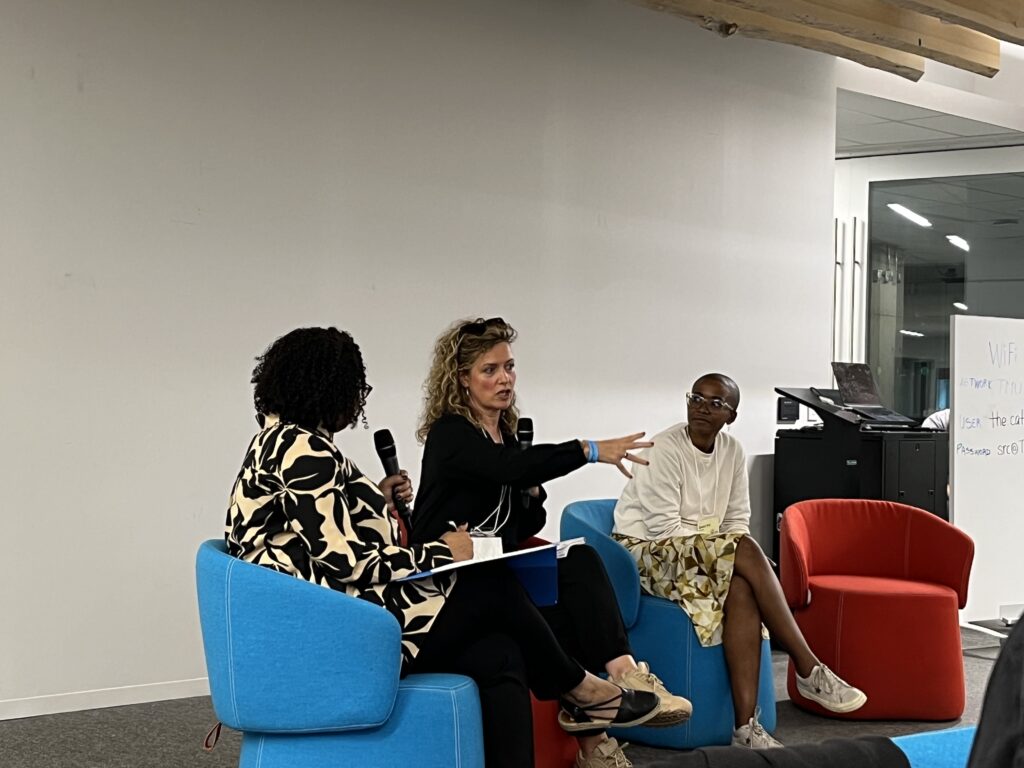
Audio coming soon
Live journalism challenges the ethics of traditional journalism because it pushes journalists towards more accountability, said panellists at an opportunity for ethics discussion.
The panel was one of the many events in the second-annual International Live Journalism Festival hosted at Toronto Metropolitan University (TMU).
Being accountable means realizing how much journalists take from the people they write about, said Zanele Mji, an investigative freelance journalist based in South Africa and multimedia storyteller. It’s not just about asking sources what happened to them.
“I’ve started to explore the ways in which I can pass the mic to the people with the stories and who the stories are about,” Mji added. “That’s like the easiest way to literally let someone speak for themselves.”
The panellists mentioned that sometimes traditional journalists feel they need to disconnect from sources and have no feelings, but that’s the “good stuff” in live journalism. This medium presents the opportunity to bring stories back to the people they belong to and have transparency with the audience.
“It comes down to what you’re saying, who tells a story and how we use that material,” said Glenda Cooper, a panellist and the deputy head of the journalism department at City University of London. “We try to bring the barrier down between this distance between journalists and audiences.”
Sonya Fatah, the festival director who also runs stitched!, the live journalism lab at TMU, described live journalism as an oral form of storytelling that has different ethics tha traditional journalism.
“Storytellers don’t see themselves as being in a hierarchy to the public or institutions. They’re really interested in their responsibility to the people whose stories they tell,” she said.
Live journalism is an opportunity to empower sources while also protecting them.
“Often you find that with journalistic standards and practices, it’s done that way because it was always done that way. And journalism as an industry, I think, can move forward with bringing our diverse perspectives and ideas,” Mji said.
Reporter, On The Record, fall 2023.

